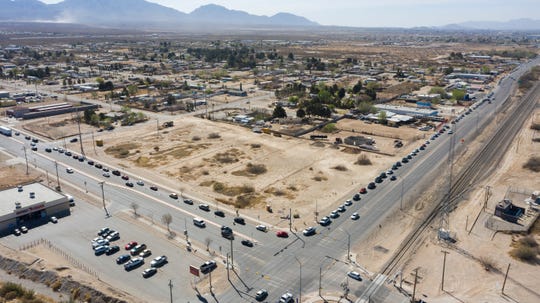Many older teens only have access to one vaccine: The hardest one to roll out in rural America
As states expand COVID-19 vaccine eligibility to allow shots for 16- and 17-year-olds, teens in rural America may have trouble getting them.
Of the three vaccines authorized in the U.S., currently only one can go to that age group: the Pfizer-BioNTech shot. That vaccine comes in 1,170-dose packages at minimum and expires after five days in a fridge, meaning too many doses on too tight a deadline for many rural communities to manage.
“We’re still trying to get people to accept the vaccine,” said Aurelia Jones-Taylor, CEO of Aaron E. Henry Community Health Services Center, which serves remote regions of the Mississippi Delta. “If we have to race to give out 1,100 doses in five days, that’s untenable.”
Some health experts say vaccinating children — more than a fifth of the nation’s population — is key to ending the pandemic. In the meantime, pressure is mounting to get vaccines out as health officials flag warning signs of another surge of cases, this time with more contagious variants that seem to affect kids more than the initial virus strain that coursed through the U.S.
“The infection can continue to spread until we get everyone in the population vaccinated, and that includes younger individuals,” said Gypsyamber D’Souza, an epidemiologist with Johns Hopkins Bloomberg School of Public Health.
In-depth: Comparing the COVID-19 vaccines
Cars can be seen lining up for miles in hopes of getting a COVID-19 vaccinations at the West Valley Fire Department in Anthony, Texas, on April 1, 2021. (Photo: Omar Ornelas, El Paso Times)
Less availability compounded by more vaccine hesitancy
The logistical challenges of eventually getting the shots to rural kids of all ages will likely continue, at least in the short term. That’s because the companies behind the sole vaccine with approval for 16- and 17-year-olds, Pfizer and BioNTech, have also been the first to seek federal approval to vaccinate younger ages after a trial showed the vaccine was effective in kids 12 through 15 years old. Pfizer spokesperson Steve Danehy said the company hopes to win regulatory approval for that age group before the start of the next school year.
For some families, the shots are so coveted that they’ll travel whatever distance it takes. Dr. Jeannette Wagner Waldron, 45, of Park County, Montana, said the closest place she was able to find a vaccine for her 17-year-old daughter, Julie Waldron, was Billings, which meant a nearly four-hour round trip to a CVS pharmacy there for the teen’s first shot.
“I’m more than willing to drive two hours to get my kiddos vaccinated,” Wagner Waldron said. “They’ve given up a lot, from their activities and seeing their friends, in order to protect people from the virus.”
Coronavirus Watch newsletter: Sign up for daily updates right in your inbox
Not everyone can travel that far for vaccines once, let alone twice to get both doses. Compound that with some reluctance in rural communities to get vaccinated at all.
A recent KFF survey showed a larger share of rural residents — 21% — said they wouldn’t get a COVID vaccine compared with urban and suburban respondents. That could mean not enough remaining demand for vaccines to use up a 1,170-dose Pfizer package in rural communities. Even if the demand exists, rural health departments may not have enough workers to administer the doses fast enough.
Source: Read Full Article


